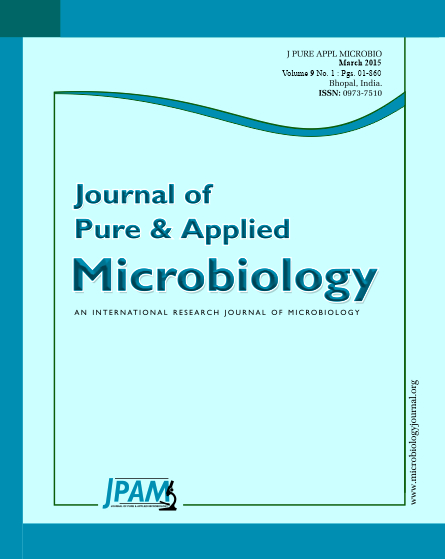There 70 bacterial strains were isolated from the rhizosphere zone of wheat. All of them subjected to screening to exhibit an antifungal activity against two main phytopathogenic fungi; F. oxysporum ATCC-48112TM and A. flavus ATCC-9643TM. The screening test revealed that, 32 bacterial strains were found have an antifungal activity against both fungi mentioned before. There were 7 fluorescent strains observed under UV light. These fluorescent strains exhibited more antifungal activity than others. Nevertheless, one of them was the most potent antifungal fluorescent strain. Seven fluorescent strains were identified as P. fluorescens, which subjected to PCR to detect PhlD gene which responsible for 2,4-diacetylphloroglucinol (DAPG) production. P. fluorescens produced DNA fragments corresponding to approximately 745-bp size that corroborated with the predicted known PhlD sequence of Pf-5(NRRL B-23932) used as positive control in the current study. The antifungal compound was extracted from the suspension of P. fluorescens and then identified by using NMR and HPLC techniques. Eventually, there some physiological conditions were studied which impact on DAPG production such as oxygen percentage, temperature, sugars, amino acids.
Aspergillus species, Fusarium oxysporum, King’s-B, Pseudomonas fluorescens, Wheat rhizosphere
© The Author(s) 2015. Open Access. This article is distributed under the terms of the Creative Commons Attribution 4.0 International License which permits unrestricted use, sharing, distribution, and reproduction in any medium, provided you give appropriate credit to the original author(s) and the source, provide a link to the Creative Commons license, and indicate if changes were made.


